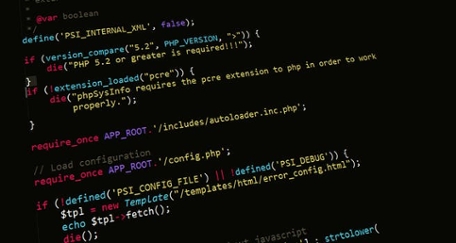Okay, this question might be a little silly: I’m not tech-savvy, sorry! But I’m kind of weirded out by IP addresses. I don’t really understand what they are, but I do know that my IP address is something that identifies my computer (right?) — so I always assumed that it was private, or only available to certain trusted people and organizations, or something. But my little brother has been teasing me lately, because he knows my IP address somehow. He knows I’m a little ignorant about computer stuff, so I think he’s just having a little fun with me, but it’s still unnerving. If my brother can get my IP address, who else can? It may just be a joke, but it makes me worry that I’m not protecting my computer enough. Experts, can you help?
Your brother is indeed just having a bit of fun with you, but you’re wise to note that the implications here can run a bit deeper than a juvenile gag. When we browse the web, our IP addresses are not private in the sense that you seem to mean, and that can be a problem in some cases. We’ll explain why.
First, though, let’s talk about what an IP address actually is and what it tells people about you and your computer use. It’s not too far off to say that it identifies your computer, but that’s not exactly what’s going on. It’s not as if your computer got an IP address assigned to it when it was first assembled by its manufacturer. The IP address is actually assigned when your computer connects to the internet. Our IP address tells the internet where we’re logging on from. The IP address includes things that mark our internet router and general location.
Four main numbers make up an IP address, and they are usually represented by our regular base-10 numbers (as opposed to binary) separated by decimals. The different parts of an IP address tell us different things: the first two numbers refer to the network we’re connected to, and the second two tell us who the host is.
Your computer’s IP address is usually hidden when you’re online, but that’s only because it’s using your router’s IP address instead. That still provides enough information to tell people where you are, which is why Google can offer local search results and why Netflix can show you the movies available in your country. You can type “what is my IP address” into search engines to find the numbers yourself, which may well have been all that your brother did if you left him unsupervised around your computer. None of this is unusual — but it can be bad, of course, if the wrong people know where you are when you’re logging on. But you have ways to hide your IP from prying eyes.
Your best bet for hiding your IP address is most likely to use a virtual private network, or VPN. A VPN is just what it sounds like: it’s a type of network that you connect to virtually. Just as your computer can use your router’s “public” IP address to hide its own private IP, you can use the routers on the virtual private network to access the internet from other locations. Since these routers can be anywhere else in the world, this effectively anonymizes your internet traffic.
Your brother’s little prank is harmless, and you shouldn’t worry too much — but if you do care about your privacy and security online, you may want to think about investing in a VPN subscription.
Content Provided by Scholarship Media


